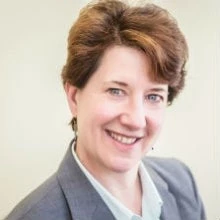
If you’re like me, just watching TV or picking up the paper is a constant reminder of issues related to “governance,” and that’s not just because it’s also my job.
People are not happy with the state of their governments these days. Distrust is running high; fiscal pressures are mounting; service delivery doesn’t reach the poorest people; corruption scandals abound and conflict seems on the rise.
The World Bank’s latest country surveys that polled around 9,000 opinion leaders in 40 of our client countries says that public sector governance has risen to the top of countries’ policy priorities. The 2016 Edelman Trust Barometer shows that more than half of the global population expresses distrust in government institutions.
What we know
It seems clear that the end of the commodity super-cycle continues to create pressures around the world. Growth is down, fiscal resources are tight and this affects service delivery and inclusion across the globe. At the same time, new technologies are creating forums for openness and citizen feedback that are welcome. But these also challenge governments’ ability to respond. Technology also creates mechanisms for transparency and accountability that move very rapidly, but can be used for both positive and negative ends.
What we’ve done
The World Bank has worked on a wide range of governance issues for years. We have in-depth experience in revenue and expenditure management and the systems needed to improve it. We have deep knowledge of the institutions of governance – be they central agencies that require reform, or the institutions that support the checks and balances that hold government accountable, such as audit institutions or the judiciary. Our teams work closely with partners and in detail on procurement in countries so they know where the problems in procurement reside. We work hand-in-hand with our colleagues across the World Bank Group to understand service delivery chains in order to improve their delivery to citizens.
The Bank has long worked with communities and we are stepping up our work on both citizen engagement and government openness. This includes helping governments build responsiveness to citizen demand and supporting the Open Government Partnership commitments, including Open Contracting. We have also spent years helping to improve transparency, access to information and to prevent corruption in our projects with our client countries. We are currently implementing our Strategic Framework for Mainstreaming Citizen Engagement in World Bank Group operations, which includes achieving the goal of beneficiary feedback in 100 percent of Bank-funded investment projects by mid-2018. The Global Partnership for Social Accountability is another cornerstone of our work on engagement with citizens, providing strategic and sustained support to civil society organizations and governments for social accountability initiatives aimed at addressing critical governance and development challenges.
It’s Complicated
But despite all this experience, knowledge and progress, ensuring “effective governance” is still a huge challenge. It’s complex, and complicated—we need to unpack it.
This is what we hope do at our 2016 Annual Meetings event, “The Governance Gap,” on Thursday October 6 10AM EST. We’ll explore the notion of citizen trust in various dimensions of governance – relationships between government and civil society, the private sector, and taxpayers with our fantastic line-up of speakers, moderated by Clare Short, Board Chair, Cities Alliance.
- Henry Rotich, Cabinet Secretary, Kenyan National Treasury;
- Winnie Byanyima, Executive Director, OXFAM International;
- Adnan Khan, Research and Policy Director, International Growth Centre at the London School of Economics;
- Edmund Malesky, Professor of Political Science, Duke University; and
- Kyle Peters, Interim Managing Director and Chief Operating Officer and Senior Vice President, Operations, World Bank
Such an environment helps to sustain growth and is at the heart of the World Bank’s twin goals of ending extreme poverty and boosting shared prosperity. Finally, strengthened institutions and improved governance are especially critical for the world’s most vulnerable countries in IDA, the World Bank’s Fund for the seventy-seven poorest countries.
Bridging the Gap
Even though the current environment for governance is daunting, there are some opportunities that we should not miss:
- Achieving all seventeen Sustainable Development Goals (SDGs) will not be possible without peace, justice, and strong institutions (SDG Goal 16). Across countries there is a clear correlation between measures of governance and per-capita income. In short: capable, accountable, and inclusive institutions are needed to end extreme poverty and achieve shared prosperity.
- Governance and Institutions is a special theme in the IDA 18 negotiations -helping us to sharpen and improve our focus in the 77 poorest countries in the world.
- The current focus of world leaders on domestic resource mobilization world-wide gives us an opportunity to help countries strengthen their revenue raising capacities. The Bank has created a Global Tax Team working closely with the IMF, OECD and the UN on the Platform for Collaboration on Tax to support countries in this work.
- The London Anti-Corruption Summit in May brought 40 world leaders together to recommit themselves to national programs for reducing corruption, drawing on new and innovative experiences and technologies.
- The forthcoming World Bank World Development Report 2017 on “Governance and the Law” will challenge us to think about the drivers that determine the underlying factors influencing the quality of policy implementation.
For me, it’s a combination of the effective management of resources - both financial and human; making sure services are delivered to people in an effective, accountable and inclusive manner; engaging citizens, and ensuring openness, transparency and integrity, and - finally – focusing more on implementation.
Let’s see if our panel agrees!
Join us on Thursday October 6 at 10AM EST for The Governance Gap: why does half the world distrust government and what can we do about it?


Join the Conversation